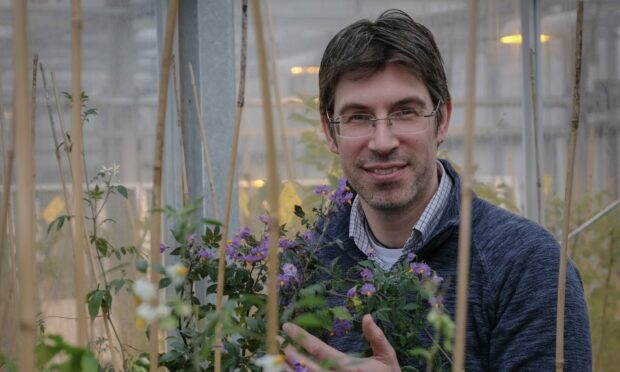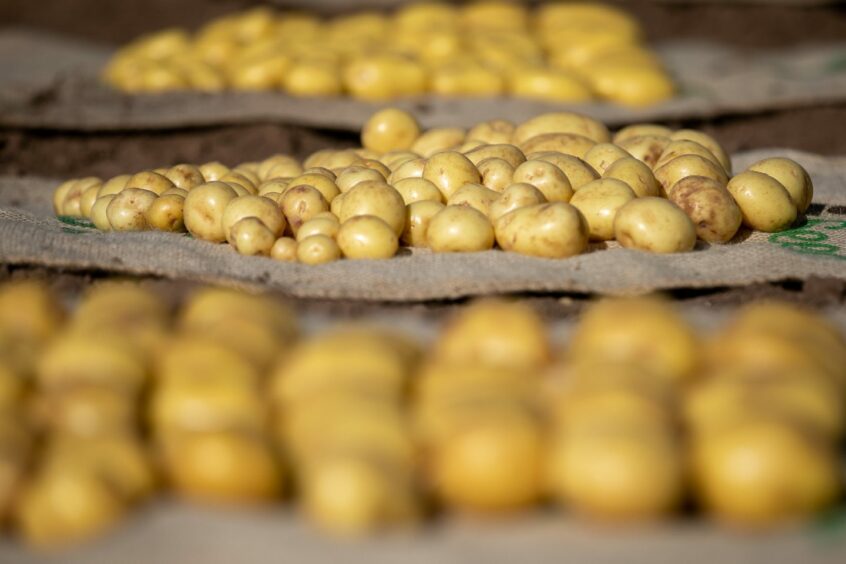A leading scientist has emphasised the importance of conventional plant breeding techniques – even if gene editing eventually becomes widely available.
In the week the UK Government’s Genetic Technology (Precision Breeding) Bill passed its report stage in the Lords, Dr Ingo Hein, the co-leader of potato research at the James Hutton Institute (JHI), addressed a potato industry conference in Dundee about the latest conventional technology which is being used to breed disease resistance into new varieties.
Later he said: “Gene editing is gaining traction and technically we’re ready to do it in the lab.
“It’s an important tool that we mustn’t ignore, but at the same time we can’t just jump on it now because the public and policymakers aren’t ready and we can’t abandon something we know is working – even if it is working at a slower pace.
“Generating plants would be much quicker than setting up crosses and doing the whole selection, but then you’d have the whole regulatory process to go through on the back of that.
“So if it takes five years to get through that process, the conventional breeding might have already achieved something similar.”
Dr Hein also pointed out that gene-edited and genetically modified plants still need the genes to use in breeding.
“You still have to identify them, and that’s where the fundamental research goes in – the work on wild species – to identify new resistances and then deploy them through breeding or through genetically modified plants. You need the knowledge in the background.”
Dr Hein said a conventional technique co-developed at JHI is already speeding up the ability to find resistance markers in potato genes, and it has been widely adopted by major breeders.
He said: “RenSeq – Resistance Gene Enrichment Sequencing – is a tool that allows scientists to find a needle in a haystack. We can now look at an entire genome and tell you exactly if you have something beneficial for breeding in a cultivar or in a wild species.
“Some of the other markets will have commercial constraints but we are publishing how we come to these markets and all the data is available so anyone could regenerate the same procedures and develop their own markets for resistances.
“The industry sees the benefits and are putting their money into it. We are doing things we couldn’t do five or six years ago, so it has been a game changer.”
JHI is now hoping to establish a dedicated Potato Innovation Hub at Invergowrie.











